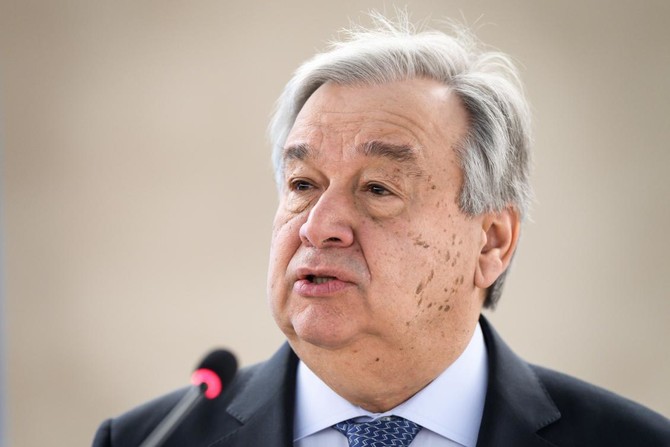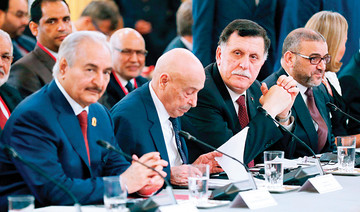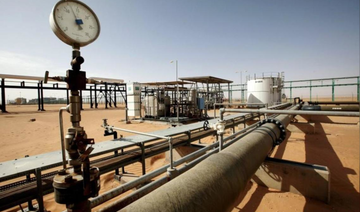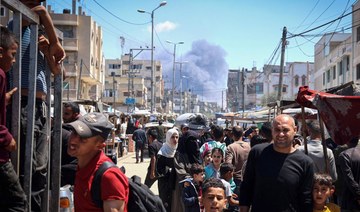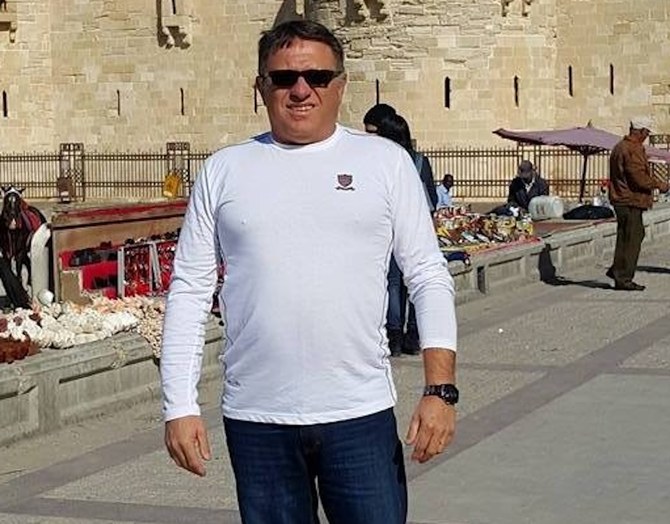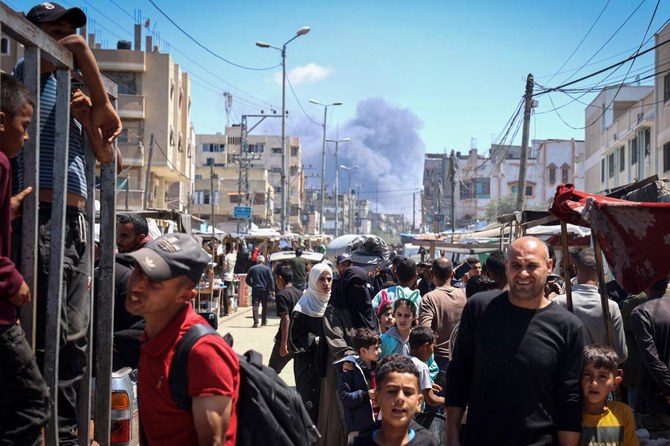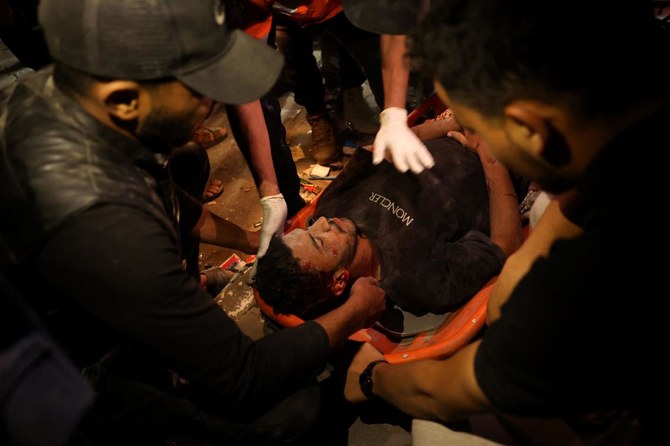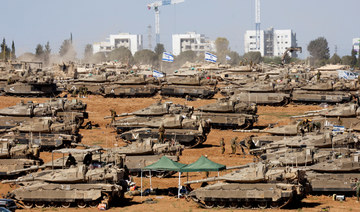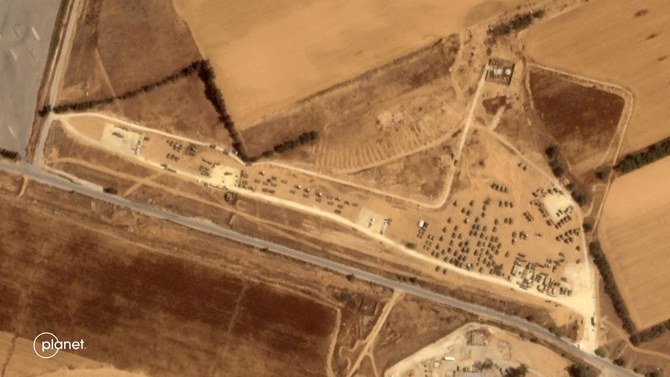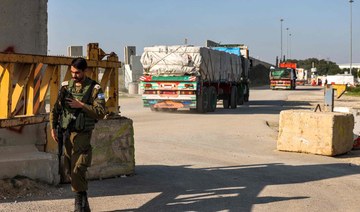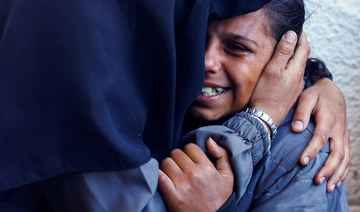CAIRO/TRIPOLI: The UN secretary-general has welcomed an agreement between rival Libyan leaders to hold elections.
The agreement came in a meeting on Wednesday in the United Arab Emirates’ capital between Prime Minister Fayez Al-Sarraj, head of Libya’s UN-recognized government in Tripoli in the west, and Gen. Khalifa Haftar, the commander of Libya’s national army which dominates the east.
In a statement late Friday, Antonio Guterres commended both parties’ “agreement on the need to end the transitional stages in Libya through the holding of general elections.”
Haftar and Sarraj had agreed to a Paris-brokered deal in May 2018 and hold a nationwide election by the end of the year. But their disputes delayed those plans.
Libya slid into chaos after a 2011 uprising that toppled long-time ruler Muammar Qaddafi.
Timeline
Libya has been mired in chaos since the ouster and killing of dictator Muammar Qaddafi in 2011, with two rival authorities and a multitude of militias vying for control of the oil-rich country. The capital Tripoli is the seat of an internationally backed government led by Fayez Al-Sarraj, while a parallel administration operates out of the east supported by military strongman Khalifa Haftar.
Here is a timeline of the Mediterranean country’s descent into turmoil:
• Triggered by uprisings in Tunisia and Egypt, demonstrations erupt in Libya in February 2011. A coalition led by Washington, Paris and London lends its backing to an armed revolt.
• Qaddafi, who has ruled for 42 years, flees the capital. He is captured and killed on Oct. 20, 2011 during a battle for his hometown Sirte, east of Tripoli. Three days later, the rebel National Transitional Council (NTC) declares Libya’s “total liberation.”
• In August 2012, it hands power to a transitional authority, the General National Congress (GNC), elected a month earlier.
• US Ambassador Chris Stevens and three American staff are killed in a Sept. 11, 2012 attack on their consulate in Libya’s second city Benghazi. A militant group is blamed.
• A car bomb in April 2013 targets France’s embassy in Tripoli, wounding two French guards. Most foreign delegations withdraw from the country.
• Dissident Army General Haftar launches an offensive in May 2014 against militant groups in Benghazi. He is backed by Egypt and the UAE. Several military officers from the east join his self-styled Libyan National Army (LNA).
• As nationalists and extremists vie for power, legislative elections are held in June and the General National Congress is replaced by a Parliament dominated by anti-extremists.
• Militias contest the results and group under the banner of “Fajr Libya” (Libya Dawn) and storm Tripoli in August, installing their own “national salvation” government and restoring the GNC. The elected house, which has international recognition, takes refuge in the eastern city of Tobruk near the border with Egypt. Thus the country finds itself with two governments and two parliaments.
• After months of negotiations and under international pressure, lawmakers from the rival parliaments sign a December 2015 accord in Morocco to set up a UN-backed Government of National Accord (GNA).
• In March 2016, GNA chief Sarraj arrives in Tripoli to set up the new government. Haftar’s rival administration, however, refuses to recognize its authority.
• n July 2017, Sarraj and Haftar meet for talks near Paris where they agree to a cease-fire and commit to elections the following year.
• They meet again in Paris in May 2018, weeks after Daesh suicide attackers kill 14 people at Libya’s electoral commission, and commit to holding parliamentary and presidential polls in December.
• In June 2018, a militia attacks two northeastern oil sites under Haftar’s control through which oil is exported. After days of fighting, Haftar’s forces announce they are back in “full control” and have also seized the city of Derna from radical militants.
• In November Haftar boycotts an international conference in Palermo, Italy.
• On Feb. 6, 2019, the LNA announces it has seized one of the country’s biggest oil fields.
• Days later the African Union calls for a global conference in July with the aim of holding elections in October.
• On Feb. 28, the UN says Libya’s rivals have met and agreed to hold national elections.


